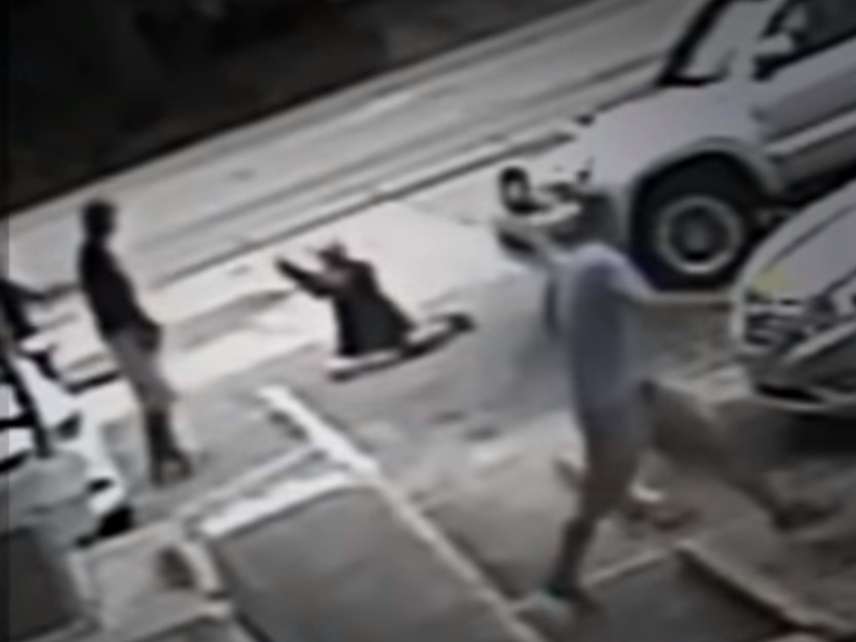Michael Drejka, Who Supposedly Could Not Be Arrested for Killing Markeis McGlockton, Is Charged With Manslaughter
Sheriff Bob Gualtieri misrepresented Florida's self-defense law while passing the buck to State Attorney Bernie McCabe.

Michael Drejka, who shot and killed Markeis McGlockton in the parking lot of a Clearwater, Florida, convenience store on July 19, was charged with manslaughter today. The charge means that Bernie McCabe, the state attorney for Pinellas and Pasco counties, did not buy Drejka's claim that he shot McGlockton because he reasonably believed it was necessary to prevent serious injury or death.
That is the justification required by Florida's "stand your ground" self-defense law, notwithstanding much confused criticism implying that the state is especially permissive in situations like this. McCabe's decision makes Pinellas County Sheriff Bob Gualtieri's failure to arrest Drejka seem all the more puzzling, since it indicates that the prosecutor not only thinks there is probable cause to believe Drejka's use of lethal force was unjustified (the requirement for an arrest) but also thinks the state can prove that by clear and convincing evidence at a pretrial hearing and beyond a reasonable doubt at trial.
Under Florida law, manslaughter, a second-degree felony punishable by up to 15 years in prison, is an unjustified homicide that does not qualify as murder, which requires premeditation. Manslaughter using a firearm is a first-degree felony, punishable by up to 30 years in prison.* The charge seems appropriate given what we know about the facts of the case.
Surveillance video shows McGlockton, responding to an argument between his girlfriend and Drejka over her decision to park in a handicapped spot, pushing Drejka to the pavement. Drejka, still sitting on the ground, draws a pistol, prompting McGlockton to back away, at which point Drejka shoots him in the chest. While McGlockton broke the law by assaulting Drejka, Drejka's response was disproportionate. He acted out of fear (and/or anger) in the heat of the moment, so the killing was not premeditated. But that does not mean it was justified.
Gualtieri conceded that Drejka "probably could have" defended himself by brandishing the gun without firing it. He has also said that he himself would not have fired in that situation. Yet he erroneously insisted that Florida law barred him from arresting Drejka. He has asserted that police are not supposed to second-guess the subjective judgment of people who use lethal force, which is wrong, and that police are not supposed to make an arrest unless it is "absolutely clear" that a shooting was illegal, which is also wrong.
Journalists, many of whom were already biased against Florida's self-defense law, followed Gualtieri's lead. The Tampa Bay Times, for instance, claims Drejka "avoided arrest…because of the controversial self-defense law that eliminated one's duty to retreat before resorting to force." Yet nothing in the law prevents police from arresting someone when they have probable cause to believe he killed someone without justification.
[*This post has been revised to note that Drejka's use of a firearm doubles the maximum penalty he faces.]


Show Comments (122)